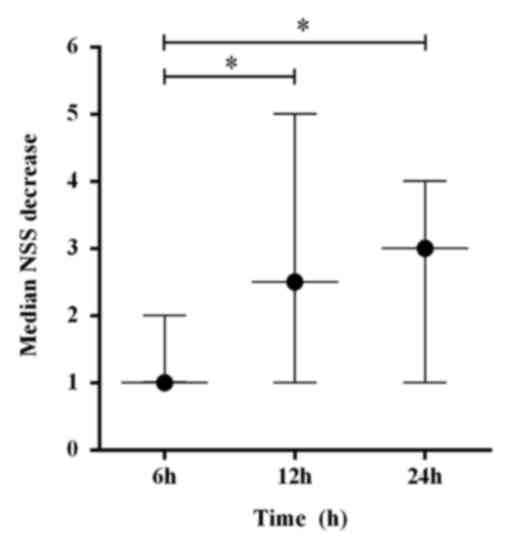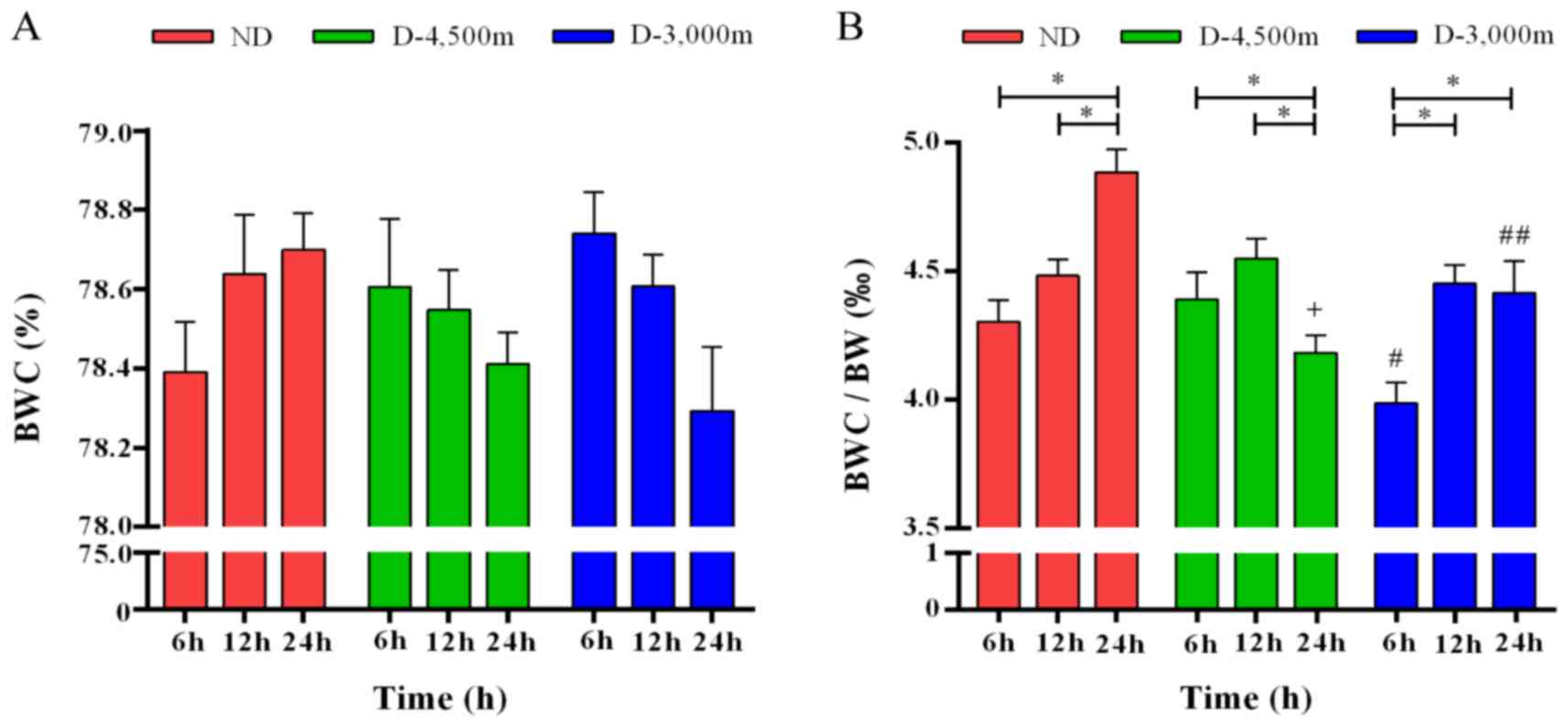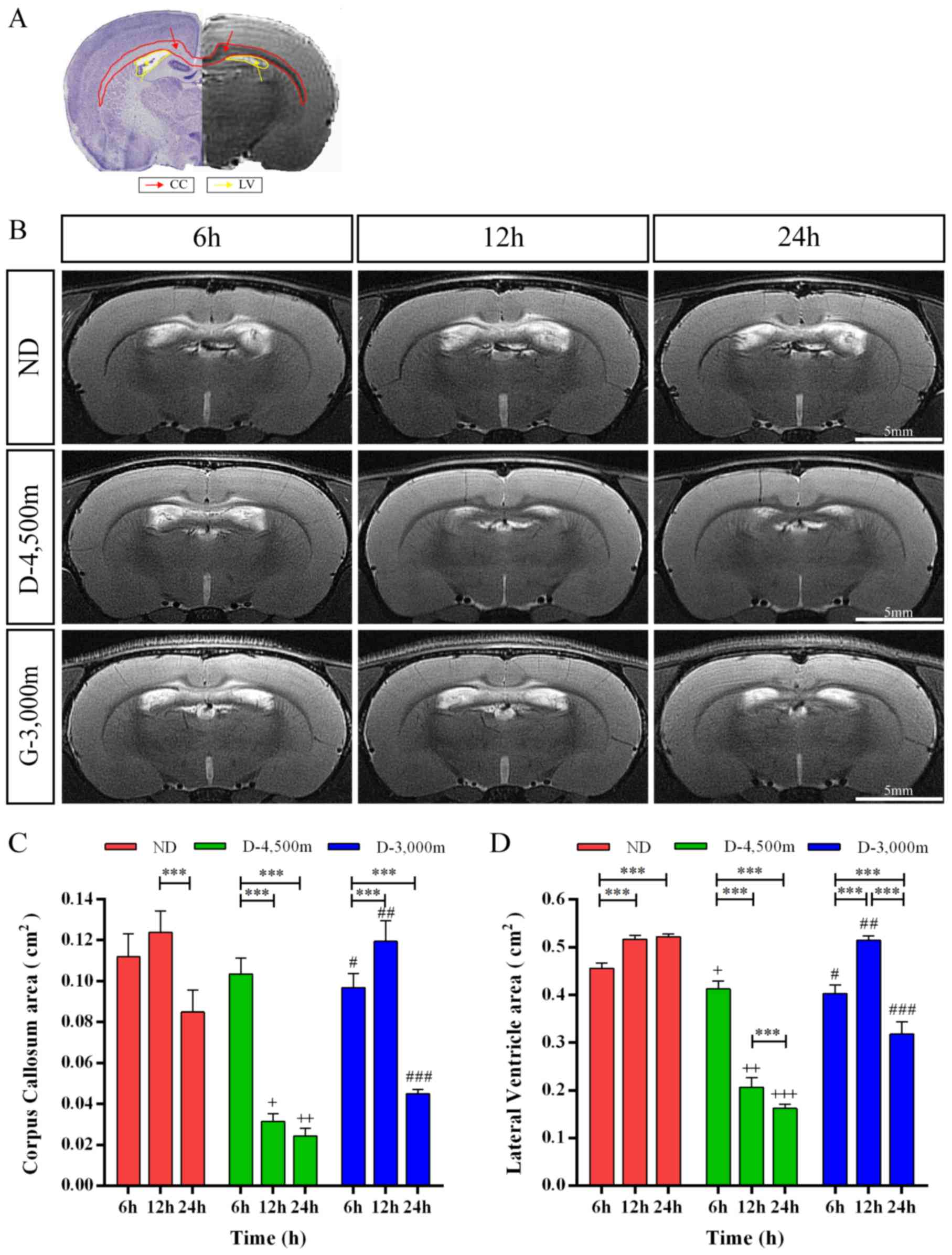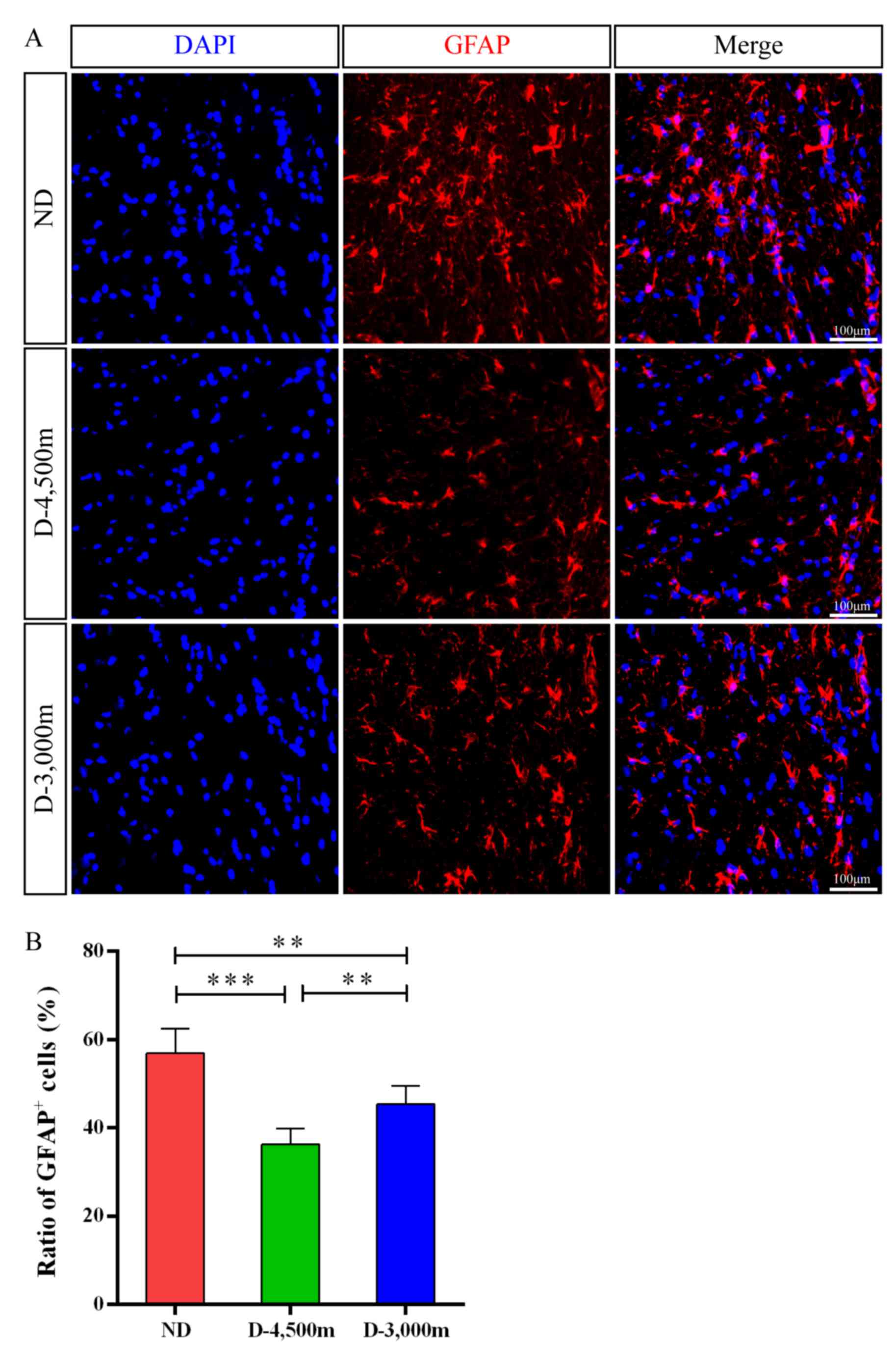|
1
|
Dicianno BE, Aguila ED, Cooper RA,
Pasquina PF, Clark MJ, Collins DM, Fitzgerald SG and Wichman TA:
Acute mountain sickness in disability and adaptive sports:
Preliminary data. J Rehabil Res Dev. 45:479–487. 2008. View Article : Google Scholar : PubMed/NCBI
|
|
2
|
Zhong JM, Wan QI, Yang YL and Juan DU:
Epidemiological investigation of 11718 hospitalized patients with
trauma in plateau. J Mil Surg Southwest China. 14:2012.(In
Chinese).
|
|
3
|
Chengliang H, Jinlong H, Chengyi L,
Haichuan X and sheng Z: Characteristics and treatment of
carniocerebral traffic injuries in plateau: Lasa. Chin J
Neuromedicine. 443–450. 2003.(In Chinese).
|
|
4
|
Zhao H, Yin Z, Xiang H, Liao Z and Wang Z:
Preliminary study on alterations of altitude road traffic in China
from 2006 to 2013. PLoS One. 12:e1710902017.
|
|
5
|
Vickers ML, Coorey CP, Milinovich GJ,
Eriksson L, Assoum M and Reade MC: Bibliometric analysis of
military trauma publications: 2000-2016. J R Army Med Corps.
164:142–149. 2018. View Article : Google Scholar : PubMed/NCBI
|
|
6
|
Woods DR, O'Hara JP, Boos CJ, Hodkinson
PD, Tsakirides C, Hill NE, Jose D, Hawkins A, Phillipson K,
Hazlerigg A, et al: Markers of physiological stress during exercise
under conditions of normoxia, normobaric hypoxia, hypobaric
hypoxia, and genuine high altitude. Eur J Appl Physiol.
117:893–900. 2017. View Article : Google Scholar : PubMed/NCBI
|
|
7
|
Deb SK, Brown DR, Gough LA, Mclellan CP,
Swinton PA, Andy Sparks S and Mcnaughton LR: Quantifying the
effects of acute hypoxic exposure on exercise performance and
capacity: A systematic review and meta-regression. Eur J Sport Sci.
18:243–256. 2018. View Article : Google Scholar : PubMed/NCBI
|
|
8
|
Simancas-Racines D, Arevalo-Rodriguez I,
Osorio D, Franco JV, Xu Y and Hidalgo R: Interventions for treating
acute high altitude illness. Cochrane Database Syst Rev.
6:CD0095672018.PubMed/NCBI
|
|
9
|
Natah SS, Srinivasan S, Pittman Q, Zhao Z
and Dunn JF: Effects of acute hypoxia and hyperthermia on the
permeability of the blood-brain barrier in adult rats. J Appl
Physiol (1985). 107:1348–1356. 2009. View Article : Google Scholar : PubMed/NCBI
|
|
10
|
Wei L, Feng G, Lu G, Dong H, Li Z, Ye D,
et al: Analysis of epidemiological characteristics of 628 patients
with traumatic brain injury in Linzhi China. Med J Natl Defending
Forces Southwest China. 427–429. 2014.doi:
10.3969/j.issn.1004-0188.2014.04.032.
|
|
11
|
Hou J, Nelson R, Wilkie Z, Mustafa G,
Tsuda S, Thompson FJ and Bose P: Mild and mild-to-moderate
traumatic brain injury-induced significant progressive and enduring
multiple comorbidities. J Neurotrauma. 34:2456–2466. 2017.
View Article : Google Scholar : PubMed/NCBI
|
|
12
|
Chieregato A, Martino C, Pransani V, Nori
G, Russo E, Noto A and Simini B: Classification of a traumatic
brain injury: The Glasgow Coma scale is not enough. Acta
Anaesthesiol Scand. 54:696–702. 2010. View Article : Google Scholar : PubMed/NCBI
|
|
13
|
Armed Forces Health Surveillance Center
(AFHSC), . Incident diagnoses of common symptoms (‘sequelae’)
following traumatic brain injury, active component, U.S. Armed
Forces, 2000-2012. MSMR. 20:9–13. 2013.
|
|
14
|
Dongsheng P, Zewen L, Kejun Q and Guoqiang
S: Analysis of the cause of death of mild-to-moderate brain injury
in plateau area. Zhongguo Shiyong Yiyao. 101–102. 2013.(In
Chinese).
|
|
15
|
Luks AM: Physiology in Medicine: A
physiologic approach to prevention and treatment of acute
high-altitude illnesses. J Appl Physiol (1985). 118:509–519. 2015.
View Article : Google Scholar : PubMed/NCBI
|
|
16
|
Sauerbeck AD, Fanizzi C, Kim JH, Gangolli
M, Bayly PV, Wellington CL, Brody DL and Kummer TT: modCHIMERA: A
novel murine closed-head model of moderate traumatic brain injury.
Sci Rep. 8:76772018. View Article : Google Scholar : PubMed/NCBI
|
|
17
|
Flierl MA, Stahel PF, Beauchamp KM, Morgan
SJ, Smith WR and Shohami E: Mouse closed head injury model induced
by a weight-drop device. Nat protoc. 4:1328–1337. 2009. View Article : Google Scholar : PubMed/NCBI
|
|
18
|
Tu TW, Lescher JD, Williams RA, Jikaria N,
Turtzo LC and Frank JA: Abnormal injury response in spontaneous
mild ventriculomegaly wistar rat brains: A pathological correlation
study of diffusion tensor and magnetization transfer imaging in
mild traumatic brain injury. J Neurotrauma. 34:248–256. 2017.
View Article : Google Scholar : PubMed/NCBI
|
|
19
|
Khalin I, Jamari NL, Razak NB, Hasain ZB,
Nor MA, Zainudin MH, Omar AB and Alyautdin R: A mouse model of
weight-drop closed head injury: Emphasis on cognitive and
neurological deficiency. Neural Regen Res. 11:630–635. 2016.
View Article : Google Scholar : PubMed/NCBI
|
|
20
|
Genet GF, Bentzer P, Ostrowski SR and
Johansson PI: Resuscitation with pooled and pathogen-reduced plasma
attenuates the increase in brain water content following traumatic
brain injury and hemorrhagic shock in rats. J Neurotrauma.
34:1054–1062. 2017. View Article : Google Scholar : PubMed/NCBI
|
|
21
|
Wang H, Zhu X, Liao Z, Xiang H, Ren M, Xu
M and Zhao H: Novel-graded traumatic brain injury model in rats
induced by closed head impacts. Neuropathology. 38:484–492. 2018.
View Article : Google Scholar : PubMed/NCBI
|
|
22
|
Yan EB, Johnstone VP, Alwis DS,
Morganti-Kossmann MC and Rajan R: Characterising effects of impact
velocity on brain and behaviour in a model of diffuse traumatic
axonal injury. Neuroscience. 248:17–29. 2013. View Article : Google Scholar : PubMed/NCBI
|
|
23
|
Hellewell SC, Ziebell JM, Lifshitz J and
Morganti-Kossmann MC: Impact acceleration model of diffuse
traumatic brain injury. Methods Mol Biol. 1462:253–266. 2016.
View Article : Google Scholar : PubMed/NCBI
|
|
24
|
Burtscher M, Gatterer H, Burtscher J and
Mairbaurl H: Extreme terrestrial environments: Life in thermal
stress and hypoxia. A narrative review. Front Physiol. 9:5722018.
View Article : Google Scholar : PubMed/NCBI
|
|
25
|
Gatterer H, Wille M, Faulhaber M, Lukaski
H, Melmer A, Ebenbichler C and Burtscher M: Association between
body water status and acute mountain sickness. PLoS One.
8:e731852013. View Article : Google Scholar : PubMed/NCBI
|
|
26
|
Hou J, Nelson R, Wilkie Z, Mustafa G,
Tsuda S, Thompson FJ and Bose P: 27Mild and mild-to-moderate
traumatic brain injury-induced significant progressive and enduring
multiple comorbidities. J Neurotrauma. 34:2456–2466. 2017.
View Article : Google Scholar : PubMed/NCBI
|
|
27
|
Ostergaard L, Aamand R, Karabegovic S,
Tietze A, Blicher JU, Mikkelsen IK, Iversen NK, Secher N, Engedal
TS, Anzabi M, et al: The role of the microcirculation in delayed
cerebral ischemia and chronic degenerative changes after
subarachnoid hemorrhage. J Cereb Blood Flow Metab. 33:1825–1837.
2013. View Article : Google Scholar : PubMed/NCBI
|
|
28
|
Yan EB, Hellewell SC, Bellander BM,
Agyapomaa DA and Morganti-Kossmann MC: Post-traumatic hypoxia
exacerbates neurological deficit, neuroinflammation and cerebral
metabolism in rats with diffuse traumatic brain injury. J
Neuroinflammation. 8:1472011. View Article : Google Scholar : PubMed/NCBI
|
|
29
|
Yang F, Zhou L, Wang D, Yang LL, Yuan GR
and Huang QY: Suppression of TRPV4 channels ameliorates
anti-dipsogenic effects under hypoxia in the subfornical organ of
rats. Sci Rep. 6:301682016. View Article : Google Scholar : PubMed/NCBI
|
|
30
|
Siebenmann C, Robach P and Lundby C:
Regulation of blood volume in lowlanders exposed to high altitude.
J Appl Physiol (1985). 123:957–966. 2017. View Article : Google Scholar : PubMed/NCBI
|
|
31
|
Westerterp KR, Meijer EP, Rubbens M,
Robach P and Richalet JP: Operation Everest III: Energy and water
balance. Pflugers Arch. 439:483–488. 2000. View Article : Google Scholar : PubMed/NCBI
|
|
32
|
Shtemberg AS, Uzbekov MG and Farber IuV:
Certain mechanisms of development of types of body tolerance to
acute hypobaric hypoxia. Izv Akad Nauk Ser Biol. 444–453. 2007.(In
Russian). PubMed/NCBI
|
|
33
|
Matu J, O'Hara J, Hill N, Clarke S, Boos
C, Newman C, Holdsworth D, Ispoglou T, Duckworth L, Woods D, et al:
Changes in appetite, energy intake, body composition, and
circulating ghrelin constituents during an incremental trekking
ascent to high altitude. Eur J Appl Physiol. 117:1917–1928. 2017.
View Article : Google Scholar : PubMed/NCBI
|
|
34
|
Luks AM, Swenson ER and Bärtsch P: Acute
high-altitude sickness. Eur Respir Rev. 26(pii): 1600962017.
View Article : Google Scholar : PubMed/NCBI
|
|
35
|
Reinthaler M, Jung F and Empen K: Remote
ischemic preconditioning of the heart: Combining lower limb
ischemia and electronic stimulation of the gastrocnemius muscle.
Clin Hemorheol Microcirc. Oct 9–2018.(Epub ahead of print).
View Article : Google Scholar
|
|
36
|
Kedzierewicz R and Cabane D: Acute
mountain sickness and high altitude cerebral and pulmonary edema.
Rev Prat. 63:18–26. 2013.(In French). PubMed/NCBI
|
|
37
|
Tang G and Yang GY: Aquaporin-4: A
potential therapeutic target for cerebral edema. Int J Mol Sci.
17(pii): E14132016. View Article : Google Scholar : PubMed/NCBI
|
|
38
|
Marmarou A, Signoretti S, Fatouros PP,
Portella G, Aygok GA and Bullock MR: Predominance of cellular edema
in traumatic brain swelling in patients with severe head injuries.
J Neurosurg. 104:720–730. 2006. View Article : Google Scholar : PubMed/NCBI
|
|
39
|
Bennett Colomer C, Solari Vergara F, Tapia
Perez F, Miranda Vasquez F, Horlacher Kunstmann A, Parra Fierro G
and Salazar Zenkovich C: Delayed intracranial hypertension and
cerebral edema in severe pediatric head injury: Risk factor
analysis. Pediatr Neurosurg. 48:205–209. 2012. View Article : Google Scholar : PubMed/NCBI
|
|
40
|
Hunt JJ Jr, Theilmann RJ, Smith ZM,
Scadeng M and Dubowitz DJ: Cerebral diffusion and T(2): MRI
predictors of acute mountain sickness during sustained
high-altitude hypoxia. J Cereb Blood Flow Metab. 33:372–380. 2013.
View Article : Google Scholar : PubMed/NCBI
|
|
41
|
Marussi V, Pedroso JL, Piccolo AM,
Barsottini OG, Moraes FM, Oliveira ASB, Freitas LF and Amaral LLFD:
Teaching NeuroImages: Typical neuroimaging features in
high-altitude cerebral edema. Neurology. 89:e176–e177. 2017.
View Article : Google Scholar : PubMed/NCBI
|
|
42
|
Mata-Mbemba D, Mugikura S, Nakagawa A,
Murata T, Ishii K, Kushimoto S, Tominaga T, Takahashi S and Takase
K: Traumatic midline subarachnoid hemorrhage on initial computed
tomography as a marker of severe diffuse axonal injury. J
Neurosurg. 1–8. 2018.PubMed/NCBI
|
|
43
|
Fidan E, Foley LM, New LA, Alexander H,
Kochanek PM, Hitchens TK and Bayir H: Metabolic and structural
imaging at 7 tesla after repetitive mild traumatic brain injury in
immature rats. Asn Neuro. 10:17590914187705432018. View Article : Google Scholar : PubMed/NCBI
|
|
44
|
Zhao J, Chen Z, Xi G, Keep RF and Hua Y:
Deferoxamine attenuates acute hydrocephalus after traumatic brain
injury in rats. Transl Stroke Res. 5:586–594. 2014. View Article : Google Scholar : PubMed/NCBI
|
|
45
|
Bonow RH, Oron AP, Hanak BW, Browd SR,
Chesnut RM, Ellenbogen RG, Vavilala MS and Rivara FP:
Post-traumatic hydrocephalus in children: A retrospective study in
42 pediatric hospitals using the pediatric health information
system. Neurosurgery. 83:732–3739. 2018. View Article : Google Scholar : PubMed/NCBI
|
|
46
|
Dorner RA, Burton VJ, Allen MC, Robinson S
and Soares BP: Preterm neuroimaging and neurodevelopmental outcome:
A focus on intraventricular hemorrhage, post-hemorrhagic
hydrocephalus, and associated brain injury. J Perinatol.
38:1431–1443. 2018. View Article : Google Scholar : PubMed/NCBI
|
|
47
|
Mata-Mbemba D, Mugikura S, Nakagawa A,
Murata T, Kato Y, Tatewaki Y, Li L, Takase K, Ishii K, Kushimoto S,
et al: Intraventricular hemorrhage on initial computed tomography
as marker of diffuse axonal injury after traumatic brain injury. J
Neurotrauma. 32:359–365. 2015. View Article : Google Scholar : PubMed/NCBI
|
|
48
|
Garcia M, Poza J, Santamarta D,
Romero-Oraá R and Hornero R: Continuous wavelet transform in the
study of the time-scale properties of intracranial pressure in
hydrocephalus. Philos Trans A Math Phys Eng Sci. 376(pii):
201702512018. View Article : Google Scholar : PubMed/NCBI
|
|
49
|
Scultetus AH, Haque A, Chun SJ, Hazzard B,
Mahon RT, Harssema MJ, Auker CR, Moon-Massat P, Malone DL and
McCarron RM: Brain hypoxia is exacerbated in hypobaria during
aeromedical evacuation in swine with traumatic brain injury. J
Trauma Acute Care Surg. 81:101–107. 2016. View Article : Google Scholar : PubMed/NCBI
|
|
50
|
Ye L, Yang Y, Zhang X, Cai P, Li R, Chen
D, Wei X, Zhang X, Xu H, Xiao J, et al: The role of bFGF in the
excessive activation of astrocytes is related to the inhibition of
TLR4/NFκB signals. Int J Mol Sci. 17(pii): E372015. View Article : Google Scholar : PubMed/NCBI
|
|
51
|
Maeda J, Higuchi M, Inaji M, Ji B, Haneda
E, Okauchi T, Zhang MR, Suzuki K and Suhara T: Phase-dependent
roles of reactive microglia and astrocytes in nervous system injury
as delineated by imaging of peripheral benzodiazepine receptor.
Brain Res. 1157:100–111. 2007. View Article : Google Scholar : PubMed/NCBI
|
|
52
|
Gill J, Latour L, Diaz-Arrastia R,
Motamedi V, Turtzo C, Shahim P, Mondello S, DeVoto C, Veras E,
Hanlon D, et al: Glial fibrillary acidic protein elevations relate
to neuroimaging abnormalities after mild TBI. Neurology.
91:e1385–e1389. 2018. View Article : Google Scholar : PubMed/NCBI
|
|
53
|
Xuan W, Huang L and Hamblin MR: Repeated
transcranial low-level laser therapy for traumatic brain injury in
mice: Biphasic dose response and long-term treatment outcome. J
biophotonics. 9:1263–1272. 2016. View Article : Google Scholar : PubMed/NCBI
|
|
54
|
Kernie SG, Erwin TM and Parada LF: Brain
remodeling due to neuronal and astrocytic proliferation after
controlled cortical injury in mice. J Neurosci Res. 66:317–326.
2001. View Article : Google Scholar : PubMed/NCBI
|
|
55
|
Damodaran TV and Abou-Donia MB:
Alterations in levels of mRNAs coding for glial fibrillary acidic
protein (GFAP) and vimentin genes in the central nervous system of
hens treated with diisopropyl phosphorofluoridate (DFP). Neurochem
Res. 25:809–816. 2000. View Article : Google Scholar : PubMed/NCBI
|



















